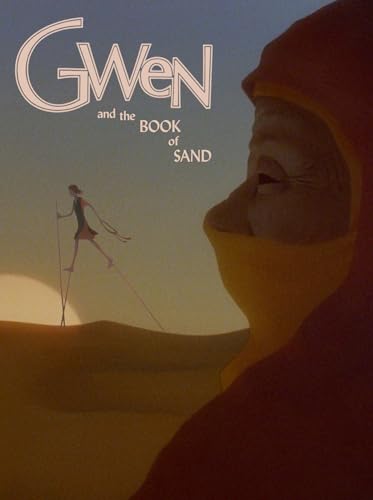366 Weird Movies may earn commissions from purchases made through product links.

Severin Films. 13 disc set.
Severin Films continues their groundbreaking folk-horror “college course in a box” set with the second semester. Expanding and exploring on themes and offering more selections to discover and debate, this time around it has 24 features representing 18 countries, along with tons of extras. Acknowledging the literary roots of the genre, Vol. 2 also comes with a 250 page book, “A Folk Horror Storybook,” a collection of 12 short stories by noted writers in the genre—Ramsey Campbell, Kim Newman, Cassandra Khaw amongst them—with an introduction by Kier-La Janisse, who returns as producer/curator of the whole shebang. The “expansion of themes” may cause some to feel cheated, as there are only a handful of films that fit the expected parameters of “horror” here. But that objection may be more of a failing of the viewer. There are elements of the frightful in all of the selections, and although perhaps “uncanny” or “spectral” would be better terms, “horror” makes for a good umbrella.

Disc 1 features the UK with a film by writer Sean (“England’s Screaming”) Hogan, To Fire You Come At Last (2023), a knowing homage to BBC shows like “Dead of Night” and “Ghost Stories For Christmas.” Four men carry a coffin to a graveyard along a “corpse road” and encounter dangers: from each other, and from something else. Bonus features include commentary by Hogan and producers, along with an earlier short by Hogan, “We Always Find Ourselves In The Sea,” also with commentary, and a separate featurette on corpse roads.
Paired with To Fire is Psychomania, a 1973 B-movie by Don Sharp involving juvenile delinquent bikers whose leader (Nicky Henson from Witchfinder General) learns the secret of returning from the dead—and promptly does it! He then starts recruiting the other members to follow suit. There’s witchery/devil/frog worship, George Sanders (in his last role), a sappy ballad, and lots of cycle action, making for some fine British cheese. This was a previous Severin release with featurettes about the actors and music, all which have been ported over, along with a new commentary by Hellebore Magazine editor Maria J. Perez Cuervo and a new short documentary on stone circles and standing stones.
Disc 2 focuses on two American features: The Enchanted (1984) with Julius Harris and Larry Miller (acting under the name Will Sennet), directed by Carter Lord, and 1973’s Who Fears The Devil? (AKA The Legend of Hillbilly John), with Hedges Capers and Severn Darden, directed by John Newland. Based on a story by Elizabeth Coatsworth, Continue reading ALL THE HAUNTS BE OURS: A COMPENDIUM OF FOLK HORROR, VOLUME 2







![Freckled Max And The Spooks [Blu-ray]](https://m.media-amazon.com/images/I/51EUW7jXJxL._SL500_.jpg)



![The Cathedral Of New Emotions [Blu-ray]](https://m.media-amazon.com/images/I/41unDZMAUNL._SL500_.jpg)

 The comedy is good, including moves named for films Lee appeared in and talking skeletons. At times it’s naughty: a running gag involving Lee’s rumored sexual prowess and the Underworld King’s wives attempting to find that out firsthand; a joke involving nunchucks and “Bruce Lee’s Third Leg,” which was snatched subsequently for other kung-fu comedies. And just the idea of bringing together Popeye, Emmanuelle, 007 and others is brilliant, especially since such a thing wouldn’t even be possible in today’s corporate climate unless it were a no-budget ultra-underground project that maybe 30 people would even be aware of existing.
The comedy is good, including moves named for films Lee appeared in and talking skeletons. At times it’s naughty: a running gag involving Lee’s rumored sexual prowess and the Underworld King’s wives attempting to find that out firsthand; a joke involving nunchucks and “Bruce Lee’s Third Leg,” which was snatched subsequently for other kung-fu comedies. And just the idea of bringing together Popeye, Emmanuelle, 007 and others is brilliant, especially since such a thing wouldn’t even be possible in today’s corporate climate unless it were a no-budget ultra-underground project that maybe 30 people would even be aware of existing.
![The Game Of Clones: Bruceploitation Collection - Volume 1 (7-Disc Special Edition) [Blu-ray]](https://m.media-amazon.com/images/I/51vhC5R6uJL._SL500_.jpg)